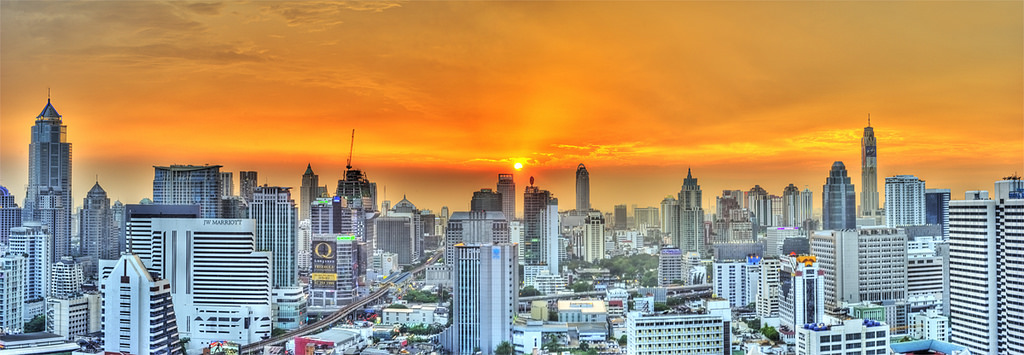With one of the fastest growing markets in the world, Thailand is on the verge of a major financial windfall. Here’s how Asia’s top performing stock market primed itself for success.
In March, Bloomberg Business announced a major shift in the international financial hierarchy: the Stock Exchange of Thailand (SET) Index overtook Indonesia’s Jakarta Stock Exchange (JCI) Composite Index as Asia’s best performing stock market. The SET showed 8% growth from the start of the year, and rising, close to double the 4% growth of the JCI, which appeared to be moving downward.
Much of this growth was due to the massive influx of foreign investments in Thai securities, at the highest rate since September 2014. This heavy infusion of outside interest is no fluke — it’s the realization of an economic plan that has shaped the country into one of the most promising markets in the world.
From Warzone to Economic Haven
Not long ago, Thailand was a financial nonstarter marred by its shaky border relations with neighbors Myanmar (once Burma), Laos, Vietnam, and Cambodia. Along with its position in the midst of these powderkegs, Thailand faced its own political issues: as recently as 2014, the country’s elected government was ousted in a military coup that majorly damaged relations with foreign investors, according to the Wall Street Journal.
This was merely the latest shakeup of political authority, as it was the 19th coup since absolute monarchy was disbanded in 1932. After pledging to return the country to civilian rule after the coup, military leader and current Prime Minister Prayuth Chan-ocha remains in power today, according to the BBC.
From an uninformed observer’s perspective, the current political climate in Thailand might appear too volatile for safe investment. In reality, the major growth the market has experienced has come in large part from the policies instituted under military rule, as well as savvy actions taken strictly for economic prosperity, according to Bloomberg. The Thai government, led by Prayuth, has created ten special economic zones throughout the country that offer tax breaks and similar incentive programs to foreign investors.
And the country’s location, another former deterrent from economic success, is now appearing to be a major asset. Thailand’s sales to its border countries accounted for 10% of its total exports in the first eight months of 2015, and Myanmar’s economic growth is tracking even higher than powerhouses China and India, as Bloomberg explains. Stabilized relations have led to plans for $83 million worth of infrastructural projects to establish new cross-border trade routes.
New Markets
Those trade routes are doubly important for Thailand: the expanded trade scope should lead to better access to the massive markets of India to the northwest and China to the northeast and their estimated 2.4 billion consumers. These inroads will be essential for the fledgling Association of Southeast Asian Nations Economic Community (AEC), which was formed in 2015. The community establishes an open economic market among its ten member countries, pooling the power of over 600 million people and a combined GDP of over $2.4 trillion.
With this confluence of favorable economic factors, foreign investors have good reason to be excited about the prospects offered by the Thai market — and just as much cause for caution at the country’s history of instability.
Open Borders, Open Communication
To sustain the heady levels of market growth for the SET, open channels of communication between Thai IR professionals and their foreign investors will be just as important as open trade borders.
The IR sector in Thailand is already stepping up to the plate. In 2014, even in the most unsteady of times for Thai organizations, two Thai companies were recognized for excellence IR Magazine. In its unique political climate, Thai IR professionals have to be tough — and most importantly, open with their investors — to make the cut.
Richard Jones, the head of IR and corporate communications for Indorama Ventures, agrees. According to IR Magazine, he has a simple message for his foreign investors in troubled times: “Stop listening to the rubbish on CNN. Call me and I’ll tell you straight: the stock market isn’t moved by coups. It’s moved by real economics, and even the army wants people to make money.”
As the market experiences even greater levels of growth, IR professionals should take it a step further: instead of waiting for the worried calls to come in from investors, proactivity in communication will win their trust. Through constantly updated IR websites, social media accounts, and mobile apps, the Thai market and its investors can stay on top of developments in a booming market.
(Mike Behnken/flickr)

